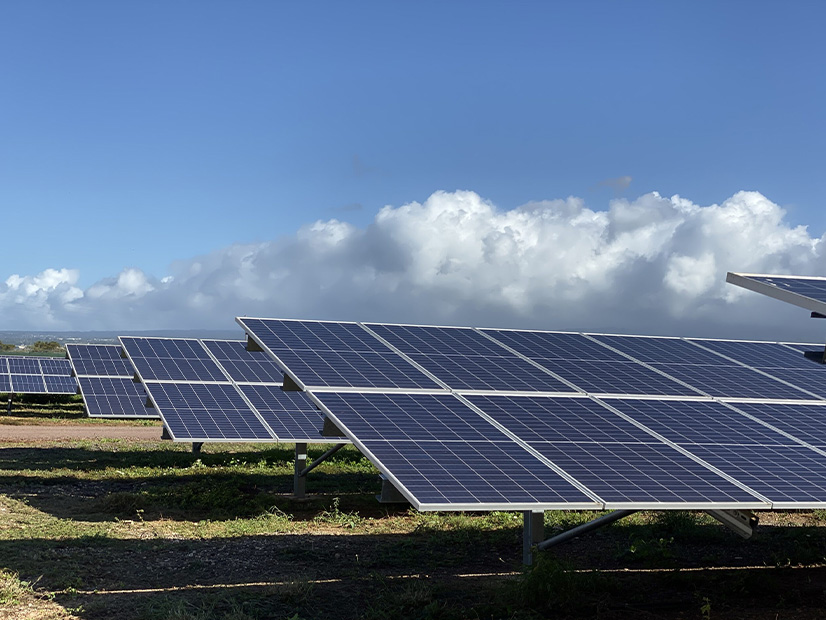Hawaiian Electric Company (HECO) this month withdrew its plans to build a key battery storage system on Oahu just months after applying to develop the project. Tight deadlines and supply chain issues appear to be the reason for the cancellation.
The proposed West Loch Battery Energy Storage System (BESS) would have consisted of 80 MWh of storage capacity intended to cover a portion of the potential energy shortfall stemming from the planned shutdown of the AES Hawaii Power Plant this September. The 180-MW, coal-fired plant supplies about 20% of Oahu’s electricity. (See Hawaii PUC Weighs Coal Plant Closure Options.)
Over the past year, HECO vacillated on its plans for building the BESS in the West Loch area of Pearl Harbor, the site of an existing 20 MW solar facility. In January, the utility finally applied to the Hawaii Public Utilities Commission for expedited approval to begin initial work on the $2.5 million project, contending that quicker review “would improve the likelihood that the Company could successfully capture this opportunity, as the manufacturing capacity may be sold by the battery supplier at any time” (2022-0019).
In approving HECO’s down payment for the project in February, the PUC cautioned that it would not allow the utility recovery of those initial costs if the project was rejected after more thorough review.
The regulator also warned that “there is no guarantee that HECO will not encounter delays or additional obstacles, due to ongoing global manufacturing and supply chain issues relating to the batteries and/or any other components of the Project, as well as other factors.”
HECO’s cancellation suggests the foresight of that warning.
According to an April 12 PUC order approving the project withdrawal, the company supplying the BESS notified HECO that it would be unable to deliver materials this year, prompting the utility to withdraw its application.
In an email to NetZero Insider, HECO said that both the reasons for the delays and the name of the battery supplier itself are proprietary information.
But the utility noted that it had few specific details about the delay, saying the supplier “just told us” that the equipment delivery would not arrive on time. Other Hawaii clean energy projects, such as the Hale Kuawehi solar project on the Big Island, have recently been subject to delays — and even cancellations — due to supply chain issues stemming from the COVID-19 pandemic.
HECO said the AES coal plant will still be decommissioned on schedule and expressed confidence that its other renewable energy projects can handle any energy shortfalls.
“Hawaiian Electric has initiated several contingency programs to boost generation reserves and increase reliability in preparation for the retirement of AES, such as Fast DR, Battery Bonus, Grid Services procurements, energy efficiency and public education on energy conservation,” the utility said.
The PUC last year approved HECO’s plan to spend $34 million to create an emergency demand response program that will rely on residential solar and battery systems to make up to 50 MW of DR available to the utility in the face of energy shortfalls. (See Hawaii Approves EDRP Plan for Oahu.)
“This [battery] project was never intended to be the sole replacement for the coal plant,” the PUC said when reached for comment.
HECO estimates that it will complete three solar-plus-storage projects on Oahu by the end of the year: AES Waikoloa Solar (30-MW/120-MWh), Mililani 1 Solar (39-MW/156-MWh) and Waiawa Solar Power (36-MW/144-MWh).
It also suggested that the West Loch site could host another battery facility in the future.
“It was always in the plans for the West Loch PV facility to accommodate a BESS,” the utility said.



